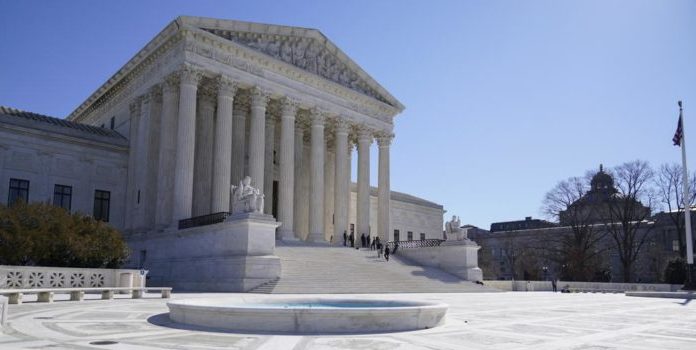(Chris Parker, Headline USA) The significant controversies surrounding free speech, Section 230 of the Communications Decency Act, and influential social media platforms will soon go before the Supreme Court.
The nations’s highest court, fresh off a blizzard of controversial ruling, will hear the case Gonzalez v. Google, focusing on the algorithms implemented by Big Tech and whether they legally fall under the protections of Section 230, reported Rebel News.
Traditionally, social media platforms have avoided penalties and liability for content hosted on their platforms that has been created by its users.
Still, there have been bipartisan efforts, albeit for different motives, to hold Big Tech accountable for content published by others. One such attempt came from New York state Sen. Brad Hoylman, D-Greenwich Village, who wanted to punish social media platforms for allowing content that was critical of vaccines and promoted what he called “hate speech.”
“Social media websites are no longer simply a host for their users’ content, however,” Hoylman’s press release said. “Social media companies employing these algorithms are not an impassive forum for the exchange of ideas; they are active participants in the conversation.”
For too long, Big Tech has used Section 230 as a shield to avoid accountability for its decisions, including the hosting of CSAM, violent content, and the removal of conservative content.
I’m looking forward to hearing what the Supreme Court has to say on this issue.
— Sen. Marsha Blackburn (@MarshaBlackburn) October 3, 2022
Changes to Section 230 could have unintended impacts on myriad news outlets, according to industry insiders, reported the Washington Examiner.
“Section 230 is the foundation that today’s internet is built on, supporting both speech online and the ability of internet platforms to take down harmful content,” Chamber of Progress CEO Adam Kovacevich said. “Eroding that wouldn’t just impact large platforms — it would hammer smaller websites, from community newspapers to niche blogs.”
Earlier this year, Republican Florida Gov. Ron DeSantis also tried to pass a law that would have given Florida’s attorney general authority to sue companies under the state’s Deceptive and Unfair Trade Practices Act.
That law was struck down as unconstitutional by the 11th U.S. Circuit Court of Appeals in a unanimous decision.
“Put simply, with minor exceptions, the government can’t tell a private person or entity what to say or how to say it,” said Circuit Judge Kevin Newsom, an appointee of former President Donald Trump, in the opinion. “We hold that it is substantially likely that social media companies—even the biggest ones—are private actors whose rights the First Amendment protects.”
Another case, Twitter v. Taamneh, will determine if the use of a social media site by terrorists could lead to serious charges of aiding and abetting for the platforms.

